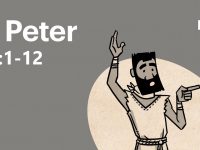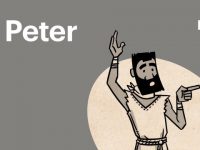Why do we do communion?

14 And when the hour came, he reclined at table, and the apostles with him. 15And he said to them, “I have earnestly desired to eat this Passover with you before I suffer. 16For I tell you I will not eat it until it is fulfilled in the kingdom of God.” 17And he took a cup, and when he had given thanks he said, “Take this and divide it among yourselves. 18For I tell you that from now on I will not drink of the fruit of the vine until the kingdom of God comes.” 19And he took bread, and when he had given thanks, he broke it and gave it to them, saying, “This is my body, which is given for you. Do this in remembrance of me.” 20And likewise the cup after they had eaten, saying, “This cup that is poured out for you is the new covenant in my blood.
Luke 22:14-20 ESV
Jesus commanded his disciples to do it in remembrance of Him, as believers we also need to obey the commands of Christ.
What was Jesus doing when he spoke theses words? Passover
Why would Jesus celebrate Passover? God commanded
1 The Lord spoke to Moses, saying, 2 “Speak to the people of Israel and say to them, These are the appointed feasts of the Lord that you shall proclaim as holy convocations; they are my appointed feasts. 3 “Six days shall work be done, but on the seventh day is a Sabbath of solemn rest, a holy convocation. You shall do no work. It is a Sabbath to the Lord in all your dwelling places. 4 “These are the appointed feasts of the Lord, the holy convocations, which you shall proclaim at the time appointed for them. 5In the first month, on the fourteenth day of the month at twilight, is the Lord’s Passover. 6And on the fifteenth day of the same month is the Feast of Unleavened Bread to the Lord; for seven days you shall eat unleavened bread. 7On the first day you shall have a holy convocation; you shall not do any ordinary work. 8But you shall present a food offering to the Lord for seven days. On the seventh day is a holy convocation; you shall not do any ordinary work.”
Leviticus 23:1-8 ESV
Passover Meal is a feast that recounts God’s great deliverance of his people from Egypt. The meal recounts the hardship of God’s people, the 10 plagues, and the exodus. Which the meal in itself has many images and references to Jesus. The feasts are also a representation on Earth of what is happening in the heavenly realm at these times on God’s calendar.
During the Passover meal, there are four times they drink from the cup. The first two cups are before the meal and the second two are after the meal. These cups represent what God did for the people of Israel.
- The cup of Sanctification – “I will bring you out from Egypt
- The cup of Deliverance – “I will deliver you from Egyptian bondage”
- The cup of Redemption – “I will redeem you with My power”
- The cup of Restoration – “I will acquire you as My people”
6 Say therefore to the people of Israel, ‘I am the Lord, and I will bring you out from under the burdens of the Egyptians, and I will deliver you from slavery to them, and I will redeem you with an outstretched arm and with great acts of judgment. 7 I will take you to be my people, and I will be your God, and you shall know that I am the Lord your God, who has brought you out from under the burdens of the Egyptians.
Exodus 6:6-7 ESV
During the passover meal they have unleavened bread. This is also the beginning of the Feast of Unleavened Bread. The bread is made without leaven which represents sin, it is pierced and has stripes. At the beginning of the Passover they take three pieces of bread, and place them into a special pouch. To the Hebrews, they represent Abraham, Isaac, and Jacob. But for us as believers, we see them as the Father, Son, and Holy Spirit. Between the first and second cup they pull out the middle piece (Jesus), break it in half, wrap it in a linen napkin, and put it away for after the meal. Many households hide it and later have the children look to find it. The rest of the bread is prayed over and distributed to everyone at the table.
Barukh attah Adonai, Eloheinu melikh ha’olam, ha’motzi lechem min ha’aretz (Hebrew)
Blessed are you Lord our God, King of the universe, Who brings forth bread from the earth. (translated from Hewbre)
John 6:51 Jesus says “I am the living bread that came down from heaven. If anyone eats of this bread, he will live forever. And the bread that I will give for the life of the world is my flesh.” Jesus had no sin. He was pierced, and by his stripes, we are healed.
They would then partake of the second cup – the cup of Deliverance, followed by the meal.
Once the actual meal portion of the feast is done, they need the middle piece of the bread (Jesus) to finish the passover meal. The children know that the meal can’t be completed without the middle piece of bread and know that their parents will give a gift or prize to the child who finds it and returns it (Jesus) to the table.
In Mark 14:22-25 And as they were eating, he took bread, and after blessing it broke it and gave it to them, and said, “Take; this is my body.” 23 And he took a cup, and when he had given thanks he gave it to them, and they all drank of it. 24 And he said to them, “This is my blood of the covenant, which is poured out for many. 25 Truly, I say to you, I will not drink again of the fruit of the vine until that day when I drink it new in the kingdom of God.”
Barukh attah Adonai, Eloheinu melikh ha’olam, borei peri ha’gafen (Hebrew)
Blessed are you Lord our God, king of the Universe, Creator of the fruit of the Vine. (translated for Hebrew)
Let’s look back to Luke 22. What is going on here is multi-faceted Jesus is celebrating one of Father God’s Feasts and also giving them the picture of a betrothal. Jesus’ disciples were not the ages we might expect, scholars believed their ages ranged from teens and into their mid-twenties. Most of them were not married but were taught Hebrew custom for the marriage covenant.
To have a marriage covenant, or any covenant in the Hebrew culture there are four aspects needed.
- The proposal
- An acceptance
- Shedding of Blood
- A Covenant meal
Custom:
- A young man comes to her house and discusses with her father the young lady is in the room the whole time and does not interject anything. (proposal)
- Once an agreement is made the young man pours a cup of wine and set it before the young lady – if she drinks all of it she accepted the proposal (Acceptance)
- They are now legally married (betrothed to each other) like Joseph and Mary were.
- The young man tells her “I will not drink of this cup until I drink a new with you”
- Jesus says in Luke 22:18 “For I tell you that from now on I will not drink of the fruit of the vine until the kingdom of God comes.”
- The young man takes the cup back to my house
- He builds onto his father’s house – a house for her
- In John 13 you see that Jesus was again at the Passover meal, Jesus then goes into a deeper explanation of the covenant and commandments, and continues into chapter 14.
- John 14:1-3 “Let not your hearts be troubled. Believe in God; believe also in me. In my Father’s house are many rooms. If it were not so, would I have told you that I go to prepare a place for you? And if I go and prepare a place for you, I will come again and will take you to myself, that where I am you may be also.”
- Once his father decides the new addition is sufficiently completed. the young man is sent back by his father to get my bride.
- Wedding feast (Convent Meal)
- Consummation of the Wedding (Blood Shedding)
In Passover, the disciples were given a proposal from Jesus to become his bride. They had a choice to accept the proposal by drinking all of the cup. They all knew what they were doing, knowing that there still needed to be the shedding of blood and a covenant meal. We have the same option when we take communion and remember we are betrothed to Him.
Three of the four parts of a covenant has been fulfilled for us: Jesus proposal, our acceptance (cup), His blood on the cross. We are just waiting for the covenant meal once Jesus returns – the Wedding Feast.
When we accept Jesus we gain entrance into God’s Kingdom. In Romans 11 it states “although a wild olive shoot, we are grafted in among the others, and now share in the nourishing root of the olive tree,”
APPLICATION
- Are you drinking of His cup, accepting His proposal for marriage, and still have intimate actions with the world?
- What things do you need to repent of, so the covenant you have made to Him will not be rejected?
- Know that He is long-suffering and desires not to break His covenant with you. You are LOVED.

